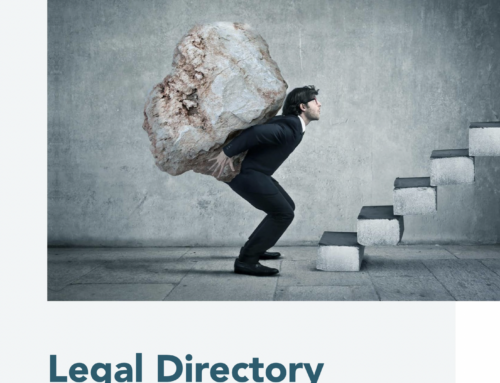Lee Saunders, Consultant and Marketing Communications Manager Nishlis Legal Marketing, recently caught up with the dedicated Middle East and Africa editor of Legal 500, Jonathan Armstrong, who provided good food for thought for Israeli law firms, old and new, to digest about the upcoming research for the Israel chapter of Legal 500.
General
Q Will you be coming to Israel this year?
Unfortunately, I will not be visiting Israel in person this year, however I am pleased to say that, as is the case every year, a researcher will be visiting Tel Aviv to meet firms face to face. The research period starts on 4 September this year and the details of said researcher will be made public then.
Q Are there any new areas planned?
The Israeli legal market is a particularly sophisticated one and as a result our coverage includes a wide range of practice areas. The 2017 edition of The Legal 500 Israel saw several new practice areas introduced. While the feedback from firms was overwhelmingly positive, we did take into account several points and have refined the list of practice areas for the upcoming 2018 edition, consolidating some of them and renaming others to help clarify what work is relevant to each. New and renamed practice areas are listed in the Israel editorial guidelines which should be the first port of call when submitting, they are found here:
http://www.legal500.com/assets/images/research/emea2018/israel.pdf
Q You know us already but we seem to be off the radar and the ranking is inaccurate, what can we do with our submission to get our message across?
The answer would vary depending on general quality of submission. I have highlighted briefly in the answer below this one what makes a good submission.
Q How important is the submission in the process?
The submission is the most important part of the process and the main source of information for our researchers when they make their assessment of the firm, including ranking decisions. A strong submission is therefore an important factor in any upwards movement in the rankings. A strong submission is a clear one with highlights described clearly and concisely, avoid legal jargon. A strong submission is also one where the strengths and breadth of expertise of the practice are identified clearly and then substantiated by work highlights.
Q Will an interview help me climb in the rankings?
In short, no. While we aim to interview as many firms as possible, it is impossible for us to interview every submitting firm and it would therefore be unfair to have interviews affect ranking decisions. We therefore use interviews to complement a submission and emphasise as well as clarify the key points contained therein. They also allow us to establish market trends which we then independently verify.
Work Highlights
Q Legal 500 asks for 10 matters. We can do that but do we get penalised for more than 10 matters?
We ask that law firms stick to the 10 work highlight limit. Firms that go beyond this are adding to the researchers’ workloads, and therefore likely annoying them somewhat, while also diluting the value of the highlights they provide. Listing more than 10 highlights simply makes it look like a firm listed all of the work it has done recently rather than a representative sample.
Q Out of the 10 matters, what is the minimum about of publishable you would ideally see to be able to really asses a firm’s work.
If a firm is not able to submit 10 work highlights for a submission because it did not work on at least 10 relevant matters in the reporting period, it should think strongly about whether or not its flow of high quality work actually matches that of ranked firms. We do not rank on volume of work alone, however in almost all cases the firms that are ranked in the higher tiers have consistently been able to provide 10 high-profile, complex matters as a representative sample of their practice.
Q You are looking for matters from the last calendar year. Can we show track record too beyond that?
The track record of a firm is a key factor in our ranking decision-making process. We analyse past submissions to ascertain this, however firms are also free to briefly detail their track record in a given area as part of their most recent submission for this area. Please, as always, keep this information clear and concise, it should not take the form of additional detailed work highlights. One good way to showcase track record in an area is to list longstanding client relationships.
Client Referees
Q Who make the most useful client referees for you?
Those referees that actually take the time to answer our questions and clearly know the lawyers well, we do not look necessarily at who is answering but rather at what it is they are saying.
Q If we provide 20 clients, do all of them get contacted?
Yes, we have no limit on the amount of client referees that can be provided, although they have to be recent clients (about 12 months since the last interaction at most), and all are contacted.
Q If more than one firm sends the same referee, will he or she be contacted once or more? if once, on behalf of which firm?
In cases where more than one firm has submitted, on time, the same referee, then that referee will be contacted once on behalf of all firms. We do not want to hassle your clients with multiple emails, therefore in the vast majority of cases referees will get a single email on behalf of all the firms that put this referee forward. One exception is when, as detailed in a previous question, a referee is submitted up to two weeks after the deadline.
Q Obviously, we do all we can to meet the deadlines, do we get penalised if we fail to meet the deadline?
With regards to submissions, extensions are generally possible and are given at the discretion of the researcher. If you think you will need one, let us know as soon as possible and we will do our best to accommodate. With regards to referees, the deadline is a hard deadline and there are penalties for missing it. Referees submitted up to two weeks after the deadline will only be contacted if they are listed as a referee for just the one firm, this is because we do not want to contact the same referee twice in short succession and so if a firm submits a referee up to two weeks late and that referee was also listed by a firm that submitted on time, we will only contact the referee on behalf of the firm that submitted on time. Referees submitted more than two weeks after the deadline will not be contacted at all.
Q Finally, thank you Jonathan – of all the factors that boost a law firm’s chances in the rankings, what is the most important thing to convey to you? What would be your number one tip?
The Legal 500 is a qualitative analysis of a law firm’s work, it is therefore crucial to communicate clearly in the submissions the complexity and profile of the work done in each practice area.









